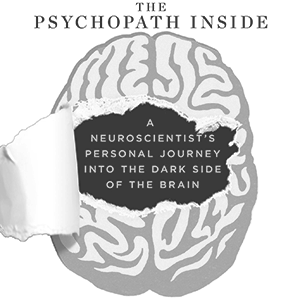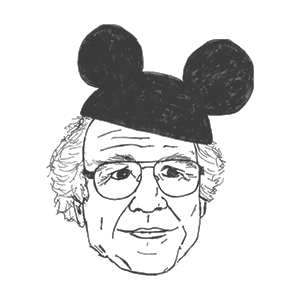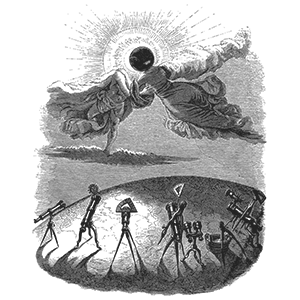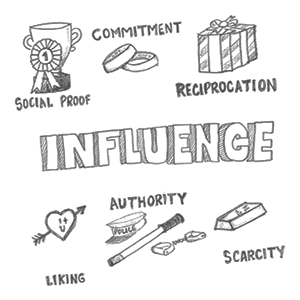Don Herbert (1917 – 2007) was the creator and host of educational television programs for children devoted to science and technology, notably ‘Watch Mr. Wizard’ (1951–65, 1971–72) and ‘Mr. Wizard’s World’ (1983–90). He also produced many short video programs about science and authored several popular books about science for children. Marcel LaFollette of the Smithsonian notes that no fictional hero was able to rival the popularity and longevity of ‘the friendly, neighborly scientist.’
In Herbert’s obituary, Bill Nye wrote, ‘Herbert’s techniques and performances helped create the United States’ first generation of homegrown rocket scientists just in time to respond to Sputnik. He sent us to the moon. He changed the world.’ Herbert is credited with turning ‘a generation of youth’ in the 1950s and early 1960s onto ‘the promise and perils of science.’
read more »
Mr. Wizard
Robert Lustig
Robert H. Lustig is an American pediatric endocrinologist at the University of California, San Francisco (UCSF) where he is a Professor of Clinical Pediatrics. He practices in the field of neuroendocrinology, with an emphasis on the regulation of energy balance by the central nervous system. He also has a special interest in childhood obesity.
Lustig came to public attention through his efforts to establish that fructose can have serious deleterious effects on human (especially children’s) health if consumed excessively. In 2009, he delivered a lecture called ‘Sugar: The Bitter Truth’ that spread virally on YouTube, in which he calls fructose a ‘poison’ and equates its metabolic effects with those of ethanol.
read more »
Gregory Clark
Gregory Clark (b. 1957) is an economic historian at UC, Davis. His grandfathers were migrants to Scotland from Ireland, and he was born in Bellshill, Scotland. In 1974 he and a fellow pupil won the ‘Scottish Daily Express’ school debate competition. After school he earned his B.A. in economics and philosophy at King’s College, Cambridge in 1979 and his Ph.D. at Harvard in 1985. He has also taught as an Assistant Professor at Stanford and the University of Michigan. At Davis his areas of research are long term economic growth, the wealth of nations, and the economic history of England and India.
Clark is most well known for his book, ‘A Farewell to Alms: A Brief Economic History of the World.’ He argued that the current divide between rich and poor nations came about as a result of the Industrial Revolution originating in Britain. Prior to 1790, Clark asserts, man faced a Malthusian trap: new technology enabled greater productivity and more food, but was quickly gobbled up by higher populations. In Britain, however, as disease continually killed off poorer members of society, their positions in society were taken over by the sons of the wealthy.
read more »
James Fallon
James Fallon (b. 1947) is a neuroscientist studying brain imaging as a professor of psychiatry and human behavior in the School of Medicine at the UC, Irvine. He prominently featured in the BBC production ‘Are You Good or Evil?’, where he is revealed to have discovered that he, himself, has the neurological and genetic correlates of psychopathy. Fallon stated that he is not concerned by the findings and believes that his positive experiences in childhood negated any potential genetic vulnerabilities to violence and emotional issues. He categorizes himself as a ‘pro-social psychopath.’
Fallon sits on several corporate boards and national think tanks for science, biotechnology, the arts, and the US military. He is a Subject Matter Expert in the field of ‘cognition and war’ to the Pentagon’s Joint Command. He has made significant scientific contributions in several areas, including discoveries of TGF alpha and epidermal growth factor, and he was the first experimenter to attempt large-scale stimulation of an injured brain with growth factors. He has also made contributions in the fields of schizophrenia, Parkinson’s disease, Alzheimer’s disease, and the roles of hostility and gender in nicotine and cocaine addiction.
Victor Papanek
Victor Papanek (1923 – 1998) was a designer and educator who became a strong advocate of the socially and ecologically responsible design of products, tools, and community infrastructures. He disapproved of manufactured products that were unsafe, showy, maladapted, or essentially useless. Papanek was a philosopher of design and as such he was an untiring, eloquent promoter of design aims and approaches that would be sensitive to social and ecological considerations.
He wrote that ‘design has become the most powerful tool with which man shapes his tools and environments (and, by extension, society and himself).’ With his interest in all aspects of design and how they affected people and the environment, Papanek felt that much of what was manufactured in the U.S. was inconvenient, often frivolous and even unsafe.
read more »
Rick Roderick
Rick Roderick (1949–2002) was an American professor of philosophy, best known for his lectures for The Teaching Company. Roderick was born in Abilene, Texas, son of (by his own description a ‘con-man’ and a ‘beautician.’
He taught at several universities, where he was much revered by many students for a Socratic style combined with a brash and often humorous approach. His breakthrough into wider circles came with his engagement with The Teaching Company where he recorded several memorable lecture series. Rick Roderick died in 2002 from a congestive heart condition.
Ronald Dworkin
Ronald Dworkin (1931 – 2013) was an American philosopher and scholar of constitutional law. His theory of law as integrity, in which judges interpret the law in terms of consistent and communal moral principles, especially justice and fairness, is among the most influential contemporary theories about the nature of law.
Dworkin advocated a ‘moral reading’ of the United States Constitution, and an interpretivist approach to law and morality. He was a frequent commentator on contemporary political and legal issues, particularly those concerning the Supreme Court of the United States, often in the pages of ‘The New York Review of Books.’
read more »
Sam Wang
Sheng-Hung (Sam) Wang (b. 1967) is an American professor, neuroscientist and author known for the books ‘Welcome to Your Brain’ and ‘Welcome to Your Child’s Brain,’ as well as for the Princeton Election Consortium psephology (study of elections) web site. Wang was raised in California.
His parents emigrated from Taiwan to the United States in the 1960s. He attended the California Institute of Technology and graduated in 1986 with a B.S. in physics with honors at the age of 19, making him the youngest member of his graduating class. He went on to earn a Ph.D. in neuroscience at Stanford University.
read more »
Bill Nye
Bill Nye (b. 1955) is an American science educator, comedian, television host, actor, writer, and scientist who began his career as a mechanical engineer at Boeing. He is best known as the host of the Disney/PBS children’s science show ‘Bill Nye the Science Guy’ and for his many subsequent appearances in popular media as a science educator.
Nye was born in Washington, D.C., to Jacqueline Nye, a codebreaker during World War II, and Edwin Darby Nye, also a World War II veteran, whose experience in a Japanese prisoner of war camp led him to become a sundial enthusiast. Bill is a former fourth-generation Washington resident through his father’s side of the family. He studied mechanical engineering at Cornell University (where one of his professors was Carl Sagan).
read more »
Margaret Sanger
Margaret Sanger (1879 – 1966) was an American birth control activist, sex educator, and nurse. Sanger popularized the term ‘birth control,’ opened the first birth control clinic in the United States, and established Planned Parenthood. Sanger’s efforts contributed to the landmark U.S. Supreme Court case which legalized contraception in the United States.
Sanger is a frequent target of criticism by opponents of birth control and has also been criticized for supporting eugenics (‘racial hygiene’), but remains an iconic figure in the American reproductive rights movement. Sanger’s early years were spent in New York City. In 1914, prompted by suffering she witnessed due to frequent pregnancies and self-induced abortions, she started a monthly newsletter, ‘The Woman Rebel.’ Sanger’s activism was influenced by the conditions of her youth—her mother had 18 pregnancies in 22 years, and died at age 50 of tuberculosis and cervical cancer.
read more »
Robert Cialdini
Robert Cialdini is Regents’ Professor Emeritus of Psychology and Marketing at Arizona State University. He is best known for his book on persuasion and marketing, ‘Influence: The Psychology of Persuasion.’ The book has been translated into 26 languages has also been published as a textbook under the title ‘Influence: Science and Practice.’
In writing the book, he spent three years going ‘undercover’ applying for jobs and training at used car dealerships, fund-raising organizations, and telemarketing firms to observe real-life situations of persuasion. The book also reviews many of the most important theories and experiments in social psychology. Cialdini distills his theory down to six key principles: Reciprocity, Commitment and Consistency, Social Proof, Authority, Liking, and Scarcity.
read more »















